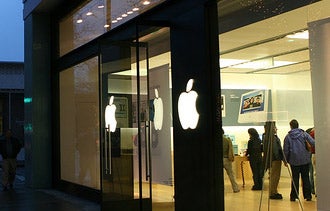Lighting Up Your Store -- and Your Sales How to light your retail space to the best effect without breaking the bank.
By Jane Porter Edited by Dan Bova
Opinions expressed by Entrepreneur contributors are their own.

No matter how carefully you plan your store displays and merchandise, your hard work could all be lost in window glare and shadows.
Lighting design can make all the difference to a store's success, but too often, retailers neglect it. Not only is lighting critical in setting the mood of your store and showcasing your products, it may very well be one of your biggest expenses, says Linda Cahan, a retail design consultant in West Linn, Ore. "People disregard the importance of lighting. It becomes a huge part of what defines their store and what defines their image."
Here are six points for storeowners to keep in mind when planning their lighting strategy:
1. Take energy and cost efficiency into account.
Going with the cheapest option might be temping, but if you want to save money down the line, be prepared to spend a little more upfront. Last year, when Tom Ferraro, opened Solar & More, a Pompton Plains, N.J.-based store, lighting the space economically was a big concern. With his store bulbs on for 10 hours every day, he wanted a light source that would last. He could have gone with halogen bulbs, the cheapest option, but discovered an LED alternative would emit as much light as a 50-watt bulb, using only 15 watts of energy. What's more, LED bulbs would last for up to 50,000 hours, about 10 times as long as halogens. While Ferraro spent $2,900 more upfront, he pays about a fourth as much for electricity as he would have with halogen bulbs. In many states, retailers can also get tax rebates for LED lighting, Cahan says, adding to their savings.
Related: In the Spotlight - Energy-Efficient Lighting
2. Be wary of fads.
While LED is getting a lot of buzz these days, don't simply follow the trend blindly, says Sean Hennessy, a Portland, Ore.-based lighting designer and consultant. Make sure you are buying from a reputable salesperson and using a brand that has been well tested. But quality aside, even the best LED lights might not be the right choice for your store, says Eric Strandberg, senior lighting specialist for Seattle-based Lighting Design Lab, an education, training and consulting organization. Other options like linear florescent lights, for example, might be better for general lighting, while LED bulbs would be more appropriate for accent lights.
3. Make your products look their best.
Using only one type of lighting throughout your store won't make your merchandise look its finest, says Hennessy. "You always want the product to have the greatest amount of focus. You want a layering light; you don't just want ambient light." In addition to general lighting, consider accent lights from the ceiling, specialty lighting built into furniture or display cases, and decorative fixtures like chandeliers. "What makes an interesting space is having different lighting on different levels," Hennessy says. "You want to have as many of those categories as you can."
Related: Six Design Mistakes to Avoid in Your Store
4. Match the lighting to your overall aesthetic.
For Sarah Shaoul, who owns Black Wagon, a Portland, Ore.-based children's boutique, matching the lighting to her store's overall look was important. Black Wagon sells clothes and other products that have an offbeat, urban look, and Shaoel hoped to work that style into her store design. She installed two oval-shaped lighting tracks asymmetrically across the ceiling and hung large glass-jar light fixtures around the store and at varying lengths over the cash register. "Not being centered fit the aesthetic of the store," she says. Every few months, Shaoul changes the color of the bulbs to match the season. "The more interesting and complicated the lighting. . . the more upscale the merchandize is perceived to be," Cahan says.
5. Meet energy codes.
Before you invest in lighting, find out about states restrictions on maximum wattage per square foot. These could "handcuff you a bit in terms of coming up with your design," says Hennessy. He advises retailers to consult an engineer, architect or lighting designer about meeting regulations. While talking to a specialist will cost you upfront, it's another expense that could save you time, money and frustration down the line. "Don't just go to Home Depot," says Cahan.
Related: Easy, Affordable Ways to Green Your Business
6. Consider long-term maintenance
Remember that the lighting you install won't take care of itself. You'll have to replace bulbs, keep fixtures clean and avoid overheating your store with too many high-wattage bulbs. Sometimes, the complications with certain lighting might not be clear at first. Shaoul, for example, didn't realize a European track-lighting system that her electrician was unfamiliar with would cost her more down the line in more time-consuming and costly repairs. "You might get a good deal," she says. "But if your electrician is going to have a hard time figuring it out, it's going to cost you a fortune."











